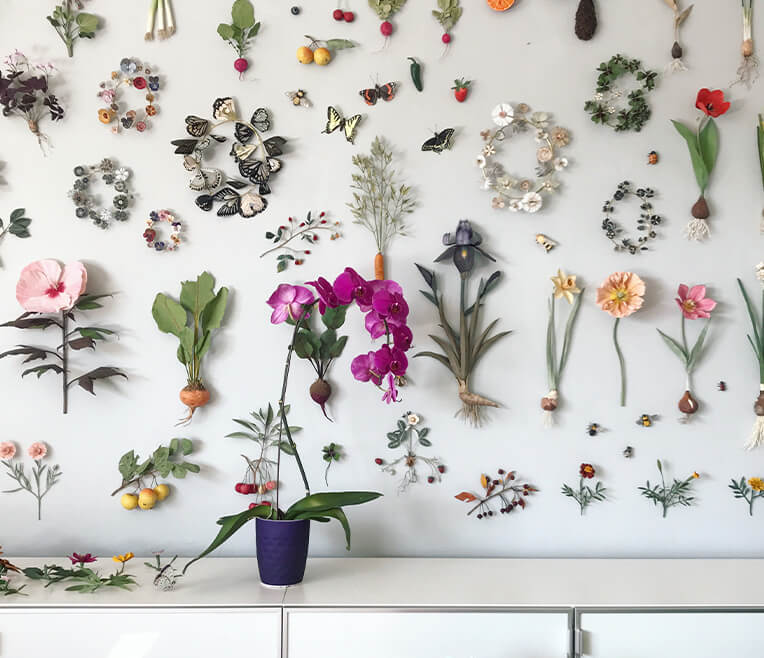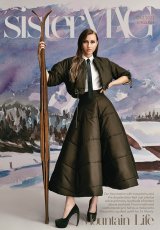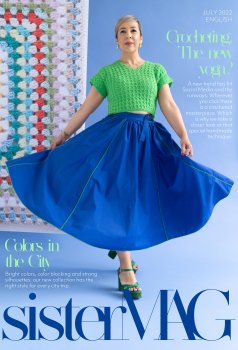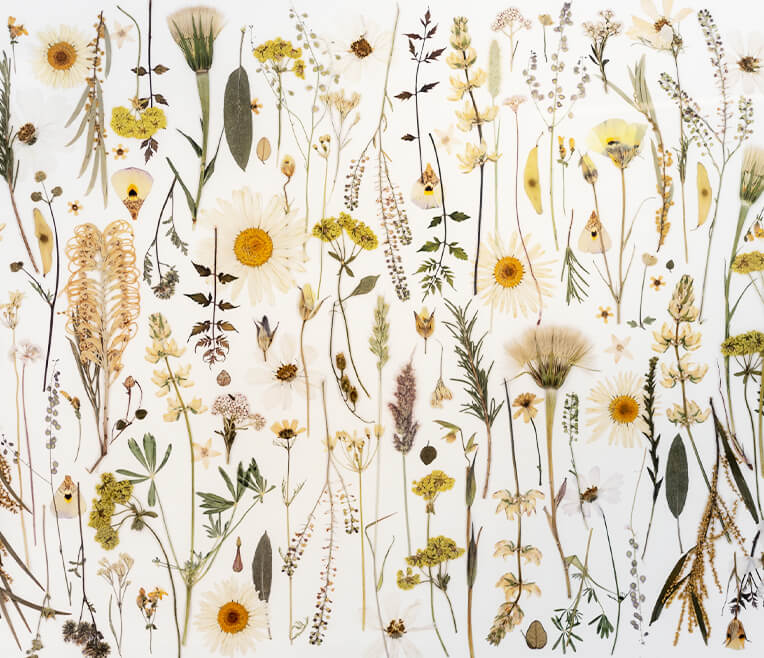
co&amor
Welcome Pia, we would love it if you’d introduce yourself a little bit. Who are you and what do you do?
My name is Pia Steinhage and I’m the founder of “co&amor”, an ethical fashion brand selling Colombian craftwork. After my degree in International Management and Business Development, I worked as an Online Marketplace Manager for a fashion group in Hamburg. However, in 2020, I wanted to create and develop something myself. With some financial support from a successful crowdfunding campaign, I founded a part-time start-up, co&amor. At the moment, we sell handbags and hats, and everything is handmade by the indigenous Wayuu people.
Who are the Wayuu?
The Wayuu are a group of
indigenous people who live in northern Columbia and Venezuela. In Columbia, they live in the La Guajira desert, which is one of the few places in the world where the sea and the desert actually meet. The peoples‘ age-old traditions include making diverse types of handicrafts, which are transformed into bags and hats. Unfortunately, they often sell them for less than they’re worth just to secure their livelihood. Daniela, my business partner, is committed to fair and ethical working conditions and pays them at least double the market value.
What is the philosophy behind co&amor?
By treating those making the products fairly and ethically, and making sure that the customers are consciously supporting this, we want to positively contribute to the development of the fashion industry. That is co&amor’s vision.
We deliver transparency to customers, with fair prices and humane working conditions for our producers. Columbia is a country full of talented craftspeople who preserve the country’s traditional, culturally rooted techniques. Everything co&amor sells is ethically handmade. It’s important to us that as we distribute the products, we also spread love for the country of Colombia, as the name represents: – co is the country code for Colombia and amor is Spanish for ‘love’.
How did you come to find your love for Colombia?
My love for Colombia began when I spent my semester abroad in 2015 in Barranquilla, the fourth largest city in the country. In particular, the peoples’ nature and lust for life inspired me from the beginning. The Colombians are warm, helpful people and being friendly towards one another is very important to them. Whether that’s in a taxi, at the shop, or on the university campus, you always meet smiling people who are open and interesting to talk with.
How does sourcing the bags work? How do you keep in touch with Daniela? Actually, tell us who Daniela is ;)
I receive the bags from my friend and business partner, Daniela. We met back when I was on my semester abroad in Colombia and later, our business relationship developed. She is one of the indigenous Wayuu people, herself, and after her degree she started her own business supporting her people to show the true value of their work. She now works alongside over 50 Wayuu artists and ensures their livelihood through fair pay. We buy our products from her, wholesale. That way, we can either default to their designs or we can also implement our own design ideas.
How are the bags made? Is the technique closer to crochet or weaving? What materials are the bags made from?
The bags are all handmade. The technique has been passed from generation to generation as an integral part of the Wayuu culture. There are three different methods that the Wayuu use to make the products. One way involves designs that are crocheted with cotton, like our SONRISA bag. Here, the cotton is either single stitched (UNA HEBRA is Spanish for “one thread”) or double stitched (DOS HEBRAS is Spanish for “two threads”). The first, more traditional type is more time intensive and leads to a stronger fabric. The second type came about over the years in order to reduce the production time. The crocheting is done mostly by the women. By the time they hit puberty, the technique has already been passed from woman to woman.
Some of the bags, and all of the hats, are weaved from the leaves of the Iraca palm tree. This type of craft is mainly done by men. They can create amazing designs by painting the palm leaves and the bag handles are either braided or weaved from cotton.
It’s very important to us to offer all of the different art styles as that’s the only way to preserve all of their traditions and ensure that the Wayuu people have a future.
And do you have a say in what designs you get in your shop?
I choose all of the designs that come into the shop myself. I either rely on the designs developed by Daniela or offer up my own ideas. Up to now, the Wayuu artists have been able to implement all of my suggestions. Daniela is eager to connect new trends with all of the older traditions.
What is your dream for co&amor? Would you like to add more besides bags to the range?
My dream is that co&amor will be the go-to place for Colombian crafts and more products will be added to the range. Later this year, I’ll be offering co&amor’s first home decor items like placemats as well as autumn fashion pieces and hand-embroidered dresses and jackets. In the future, these ranges will be expanded to cater for children and men as well. This is how co&amor can, and will, help the people of Colombia.
What is your personal favourite design?
That’s a hard question to answer, I love all the bags. I carry the UNA HEBRA in white and gold most often; I love the design so much and I use it all year round. For beach holidays, I always have a colourful version of the SOL bag with me because they’re a perfect match for the beach.
Also check out our Fashion Feature “Colors in the City” that prominently featured the co&amor bags.




